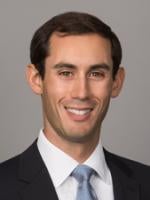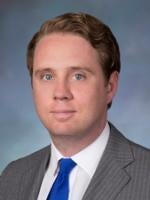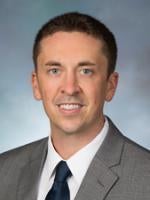In early July, and with little fanfare, Attorney General Jeff Sessions and the Department of Justice (DOJ) all but gutted the Health Care Corporate Fraud Strike Force – stripping it of several key personnel. Nevertheless, the investigation and prosecution of health care fraud will likely continue, and the Department will remain vigorous in its pursuit of health care fraud, perhaps with a more individual focus. In a May 2017 speech at the Annual Institute on Health Care Fraud, Deputy Assistant Attorney General Kenneth Blanco said, “health care fraud is a priority for the Department of Justice. Attorney General Sessions feels very strongly about this. I can tell you that he has expressed this to me personally.”
Anonymous sources close to DOJ reported that three of five full-time attorneys had been removed from the Corporate Fraud Strike Force.[1] Asked for comment on the new-look Corporate Fraud Strike Force, a DOJ spokesperson stated, “the Health Care [Corporate Fraud] Strike Force, as with the entire health care fraud unit, is going strong under steady leadership—continuing to vigorously investigate and hold accountable individuals and companies that engage in fraud, including tackling an opioid epidemic that claimed 60,000 American lives last year.”[2] Interestingly, AG Sessions did not cut positions within other strike forces, such as the Medicare Fraud Strike Force and the Organized Crime Drug Enforcement Task Forces Program. In distinction to the Medicare Fraud Strike Force, the DOJ’s Health Care Corporate Fraud Strike Force focuses on complex corporate health care fraud.
Gutting the Corporate Fraud Strike Force Aligns with AG Sessions’ Priorities
On the surface, it may appear that the dismantling of the Corporate Fraud Strike Force comes as the Department of Justice shifts resources to combat new priorities. AG Sessions has repeatedly announced his commitment to combating health care fraud, as well as cracking down on drugs, violent crime, and illegal immigration. However, a deeper dive into AG Sessions’ priorities signals a clear shift: corporate health care fraud investigations will take a back seat to the focus of DOJ headquarters on the prescription drug epidemic ravaging America. Indeed, the appointment of Kenneth Blanco as Deputy Assistant Attorney General fits Sessions’ priority commitment to tackling the opioid crisis—Blanco brings experience from several narcotics-focused roles throughout his career, including Acting Chief of Narcotics in the United States Attorney’s Office for the Southern District of Florida and Chief of the Narcotic and Dangerous Drug Section at DOJ.
While acknowledging extensive health care corruption at the corporate and grass roots levels, the Sessions-led DOJ has put the opioid crisis at the top of its list and will divert resources to components better positioned to tackle drug abuse. For example, in July 2017 Sessions announced that 412 defendants in over 20 states were charged with orchestrating health care fraud schemes totaling $1.3 billion in false claims. Importantly, over 120 of the defendants were charged for their roles in the unlawful distribution of opioids and other prescription narcotics.
Caution: Corporate Health Care Fraud Prosecutions Are Not Dead
The DOJ established the Medicare Fraud Strike Force during the George W. Bush administration to coordinate and staff the investigation and prosecution of health care fraud cases in “hot spots” around the country, identified by data analysis. Those hot spots were originally Miami and Los Angeles. The Obama Administration expanded the Medicare Fraud Strike Force to seven more “hot spot” cities: Detroit, Houston, Tampa, Baton Rouge, Brooklyn, Dallas, and Chicago. As DOJ and the Medicare Fraud Strike Force took on more cases – and as complex Medicare fraud cases involving large corporates became even more common – the Department identified a need for dedicated attorneys to oversee the most complicated corporate health care fraud cases.
As a result, in 2015, Attorney General Eric Holder formally established the Health Care Corporate Fraud Strike Force, separate and apart from the Medicare Fraud Strike Force. With a staff of five experienced trial attorneys, the Corporate Fraud Strike Force had one mission: to detect, investigate, and prosecute complex corporate health care fraud matters. Notably, in October 2016 the Corporate Fraud Strike Force orchestrated the Justice Department’s $516 million settlement with Tenet Healthcare Corporation to resolve civil and criminal allegations that Tenet received kickbacks in exchange for patient referrals. John Holland, a former senior vice president at Tenet, was also charged in connection with the fraud.
Even though the Corporate Fraud Strike Force has been effectively dismantled, private and public companies must realize that corporate health care fraud prosecutions are not dead. Because expertise in complex health care fraud investigations and prosecutions has been developed over the past decade, the need to augment expertise in the field from Main Justice has diminished. U.S. Attorney’s Offices around the country now have a well-trained, sophisticated staff to continue the Department’s work in combating corporate health care fraud. While the Department of Justice continues its re-positioning of resources to focus on Sessions’ priorities – drugs, violent crime, and illegal immigration – don’t expect to see a reduction in interest from U.S. Attorney’s Offices, given past successes and the Department’s overall commitment to health care fraud. Sessions has expressed no soft spot for corporate fraud, saying, “I was taught if [companies] violated a law, you charge them. If they didn’t violate the law, you don’t charge them.”
Additionally, the President’s proposed FY2018 budget request would increase spending in Health and Human Services’ Health Care Fraud and Abuse Control (HCFAC) program by $70 million, to $751 million. Money allocated to the HCFAC is shared among the Centers for Medicare and Medicaid Services, DOJ, and Health and Human Services Office of Inspector General. The takeaway for the health care sector is that the federal focus on health care fraud will continue. Stay tuned.
[1] Sue Reisinger & Kristen Rasmussen, As Priorities Shift at DOJ, Health Care Corporate Fraud Strike Force Gutted, The National Law Journal (July 10, 2017), http://www.nationallawjournal.com/id=1202792591440/As-Priorities-Shift-at-DOJ-Health-Care-Corporate-Fraud-Strike-Force-Gutted.
[2] Id.






 />i
/>i

